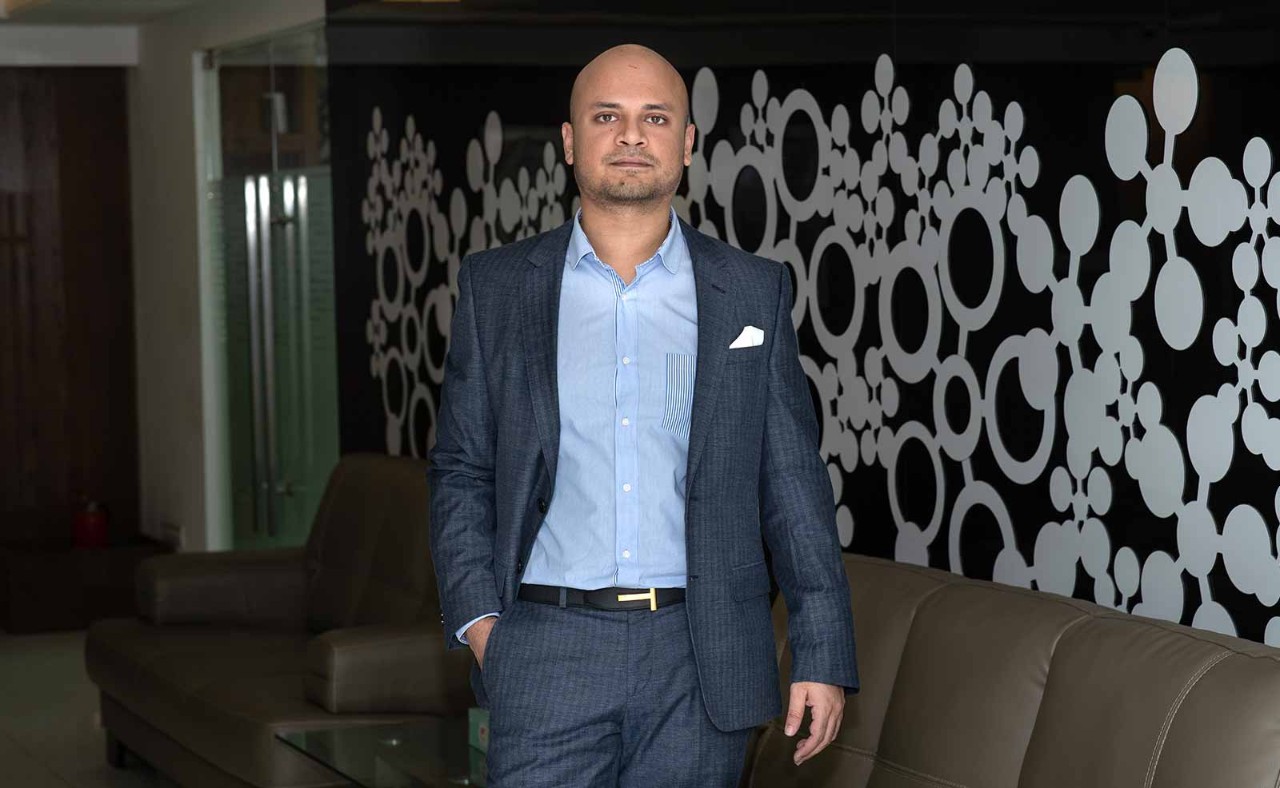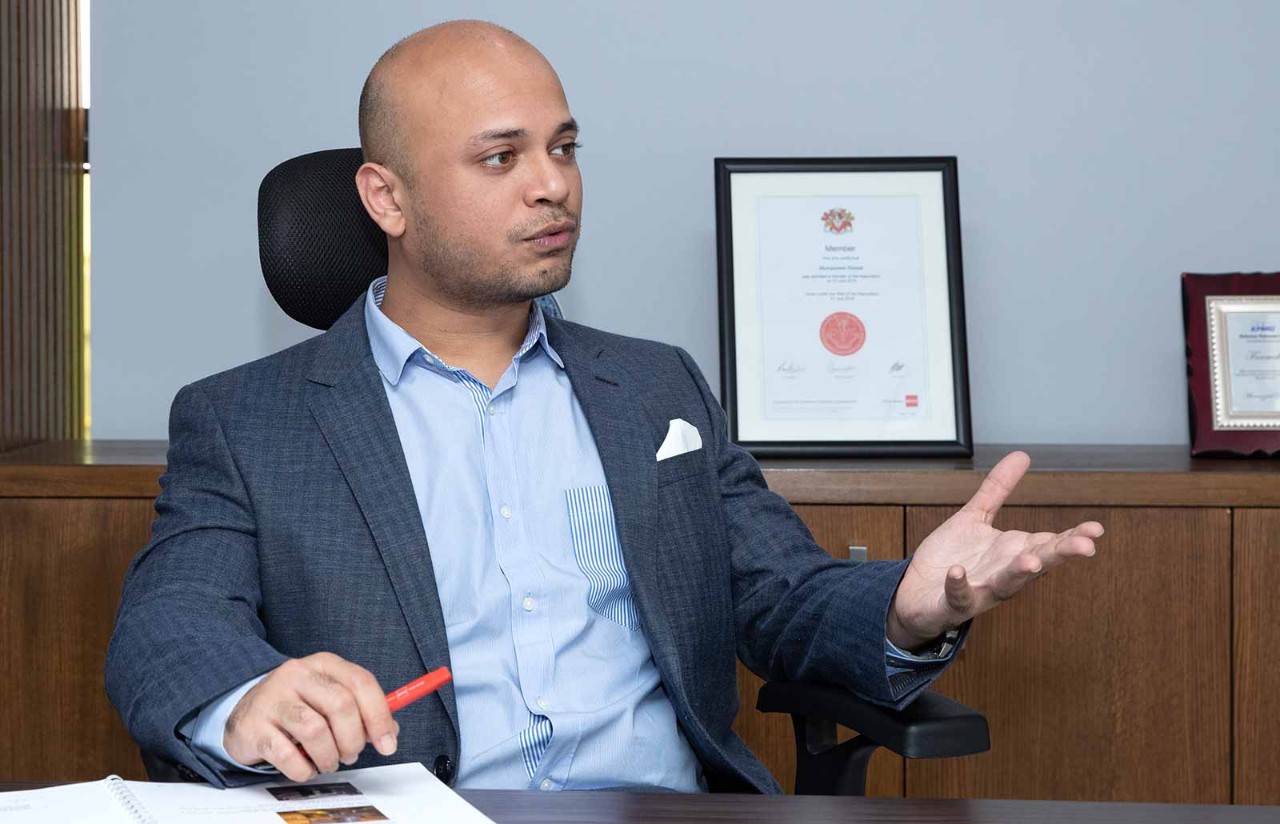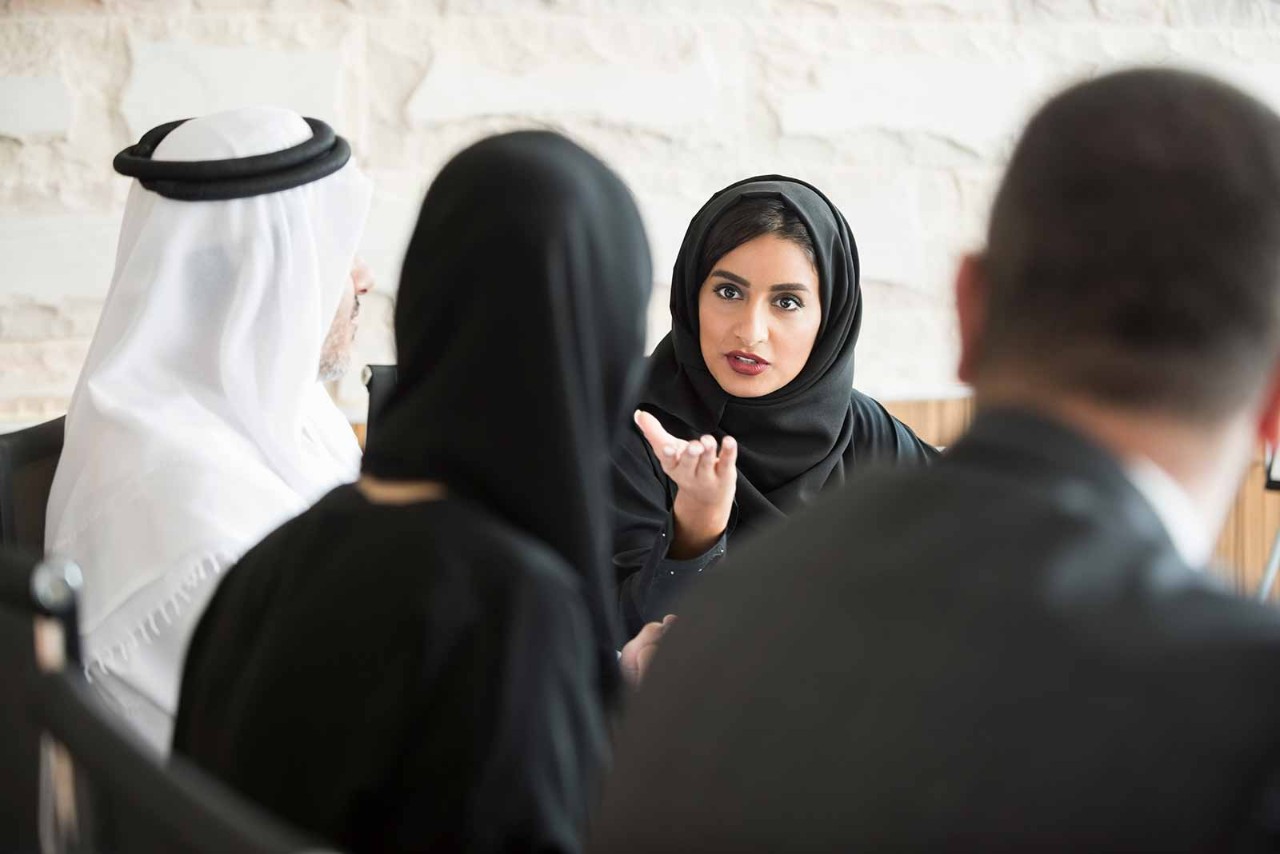
Dredging may not be something most of us give much thought to. But for a country like Bangladesh, which finds itself frequently at the mercy of extreme weather, it is crucial to keeping businesses and people moving.
Few people are more aware of its importance than Munazzeel Riasat ACCA, the youthful CEO of IBC Power and the IBC Power-Western Engineering dredging consortium. As he explains, the consortium plays a crucial role in maintaining the navigability of vital river transport routes affected by siltation – silt build-up – during the monsoon season. ‘This causes enormous hardship for our country and our people, and affects the smooth running of business,’ Riasat says.
Although there are 38 private companies in the dredging sector in Bangladesh, most have no more than five vessels in operation. IBC Power and its sister concern Western Engineering jointly boast a fleet of 33 dredgers and supporting vessels, giving the consortium an annual dredging capacity of 25 million cubic metres – equivalent to 13% of Bangladesh’s annual dredging requirement and around 25% of the country’s overall capacity.
‘We are determined to build the skilled workforce and capabilities needed to implement the ambitious initiatives undertaken by the government’
CV
2017
CEO, IBC Power
2016
Founder and managing director, Ecomatic
2014
Trainee accountant, KPMG Bangladesh
Established in 2017, IBC Power was one of a number of dredging companies created at a time when the Bangladesh government was investing heavily in the sector in order to tackle the challenges of climate change, river erosion, perennial flooding of large parts of the country and a host of other challenges related to river management.
It provides both capital and maintenance dredging services. The former focus on creating navigation routes or increasing the water retention capability of rivers, the latter on dredging silt to maintain existing navigational routes. IBC Power also provides some civil engineering services related to river management and dredging.
Riasat was the obvious choice as CEO for the new company, having quickly established a solid track record in the burgeoning sector. In 2016 he had set up his own business, Ecomatic, to provide consultancy services to a group of newly formed dredging companies.
‘The board of directors of IBC Power, pioneers of the dredging industry in Bangladesh, shared with me their ambitious vision for the future of the company and its role in the development of Bangladesh,’ Riasat says. ‘I immediately knew that I wanted to play a part.’
Capacity building
IBC’s projects can be high profile – for example, dredging the navigational channels for the transfer of heavy vessels carrying equipment for a new nuclear power plant. ‘We are responsible for ensuring the channels are open so that vessels can navigate in a timely fashion and keep the nuclear power plant project on track,’ Riasat says.
IBC’s ambition is to be recognised as a premier name in the dredging sector in Bangladesh and, ultimately, the international arena. In support of this goal, Riasat is focused on building a proficient workforce, maintaining technical and technological innovation, and supporting environmental sustainability in the company’s operations.
There is much to be accomplished. ‘The private dredging sector is still very much in its infancy,’ he explains. ‘As a result, it is difficult to source experienced, knowledgeable and competent personnel. We have therefore formulated extensive training programmes and invested heavily in equipment to train our workforce internally to meet the standards we are setting for the organisation.’ To help develop local talent IBC brought in expert trainers from the Netherlands and the US.
Relationship management
Stakeholder relationships need careful management, including those with lenders to fund both the working and investment capital IBC needs. The company also works closely with environmental assessment groups in order to preserve the ecological balance and biodiversity in operational areas.
Local stakeholder relationship management is a particularly delicate process, as the nature of dredging work can frequently lead to conflicts with local stakeholders such as fishermen and farmers.
‘Many times our dredgers have been attacked by locals, who may not always understand what we are trying to do,’ Riasat explains. ‘Some have lost hectares of land and their homes to river erosion; when they see dredging activities, they may think it’s a contributor to river erosion rather than the very opposite.
‘We engage with local stakeholders and educate them on the benefits of dredging. Where possible, we also employ local people on our sites so that they benefit from the economic activity that’s taking place in their region.’
About the consortium
US$18m
IBC Power annual turnover in 2020
422
Number of employees in the consortium
33
Number of dredgers and supporting vessels in the fleet: 15 owned and operated by IBC Power, 18 owned by Western Engineering and operated by IBC Power under a joint venture agreement

Workplace health and safety is another constant consideration, due to the heavy equipment involved. The advent of the pandemic has brought further complications. ‘Covid-19 has been a major challenge for us, as the nature of our operations requires our crews to live and work in close proximity while discharging their duties,’ Riasat adds. New protocols have been adopted to address these additional risks and minimise the scope for infection.
Solid skills
Riasat’s ambition to become a professional accountant was sown at an early stage in his education.
‘I was inspired by my father, who is a celebrated veteran of the banking industry in Bangladesh,’ he says. ‘I believed – and still do – that earning a professional qualification would enable me to build a rewarding career and allow me to achieve similar success.’
A period of full-time ACCA study in London was followed by two years as a trainee accountant at KPMG in Bangladesh, where he gained valuable insights into various industries while working on a range of audit and advisory engagements.
‘The knowledge and skills gleaned from the education and practical experience components of the qualification provided a firm foundation and gave me the confidence to establish my own business when the opportunity presented itself,‘ Riasat says.
He admits his entrepreneurial pursuits distracted him from completing his exams and it was not until 2019 that he gained membership. Nevertheless, he believes it has been vital to shaping him as a professional.
‘The setbacks I faced along the way helped me gain the fortitude to persevere in the face of adversity and this for me has been the most important lesson of all.’
Climate concern
Climate change presents both national challenges and commercial opportunities for the business. Bangladesh is ranked seventh in the Global Climate Risk Index 2020, being one of the countries most vulnerable to climate change. It has the largest deltaic region in the world, while floodplains account for around 80% of the country’s area.
‘Major threats of climate change manifest themselves in the form of riverbank erosion, land subsidence and siltation,’ Riasat says. These have led to biodiversity loss, the reduction of wetlands and impacts on agriculture and food resources – invariably causing long-term impacts on citizens’ livelihoods and economic security.
With a view to mitigating these risks, the government of Bangladesh has drafted the Bangladesh Delta plan, involving an investment of US$37bn. ‘This brings with it opportunities for private-sector dredging companies like IBC Power,’ Riasat says.
‘We are determined to rise to the occasion and build the skilled workforce and capabilities needed to implement the ambitious initiatives undertaken by the government.’
Tips
- ‘Be a risk taker and put yourself beyond your comfort zone whenever possible.’
- ‘Pursue your fields of interest whether in service or as an entrepreneur; if one engages fully in a field of interest, success is sure to follow.’
- ‘Maintain a high degree of commercial awareness, staying alert to developments in your industry and the profession and to career growth opportunities; and maintain continuing professional development requirements to become a fully rounded professional.’


